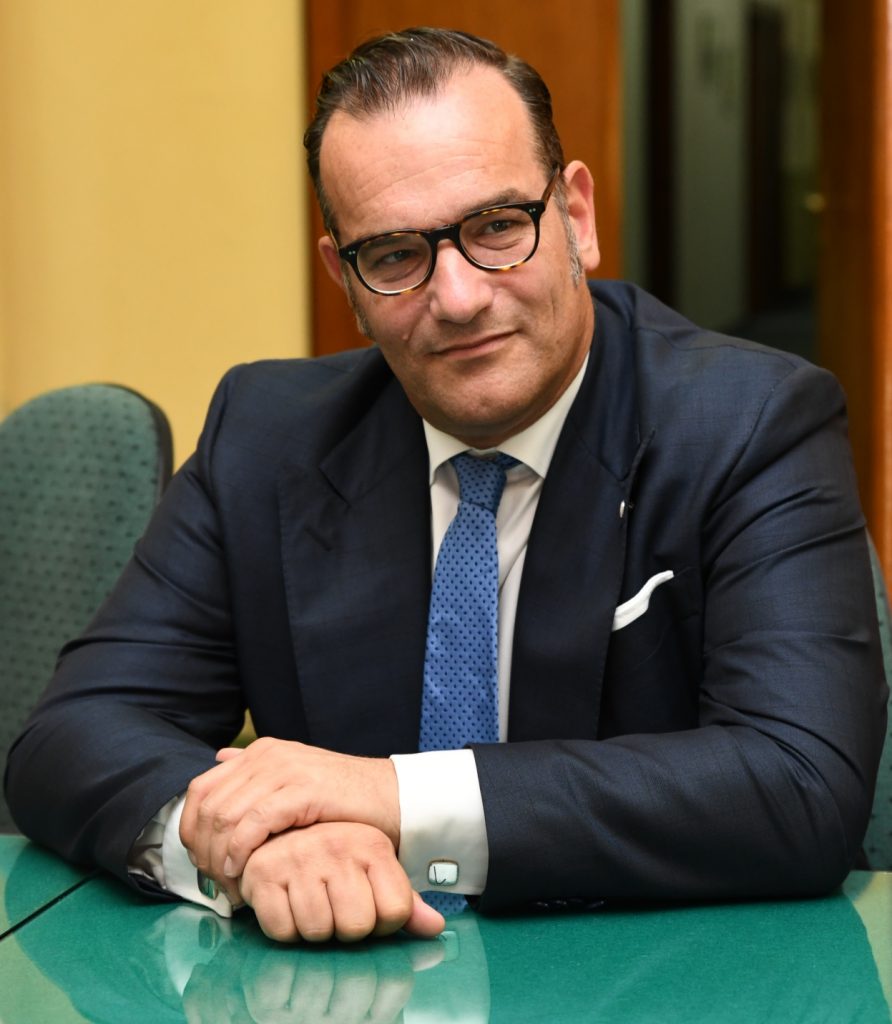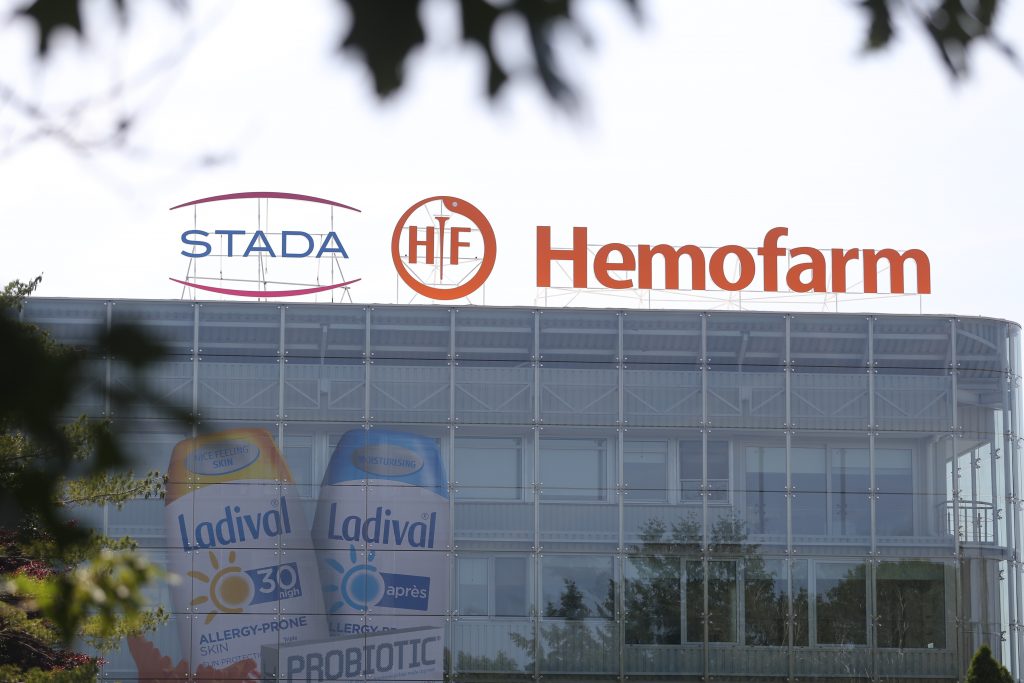We live in a global world and every business is hit by the crisis, but when we look at our companies, they do the best they can. Some industries are better, some worse. Nevertheless, the commitment of German companies to Serbia is unchanged.

Deglobalization process in certain sectors, which was especially contributed by the crisis caused by the coronavirus, can be a chance for Serbia, as well as for the neighbouring countries, the President of the German-Serbian Chamber of Commerce (AHK) and CEO of Hemofarm, Ronald Seeliger estimates.
At the same time, Seeliger points out in an interview with Tanjug that the commitment of German companies to do business in Serbia has remained unchanged.
‘We live in a global world and every business is hit by the crisis, but when we look at our companies, they do the best they can. Some industries are better, some worse. Nevertheless, the commitment of German companies to Serbia is unchanged’, Seeliger stressed out.
When asked what the growth projections and expectations of the Serbian authorities mean for their business and the fact that Serbia will best endure the crisis caused by Covid19 in economic terms, Seeliger says that it is significant for all the investors, regardless where they come from: ‘If the country manages to get through the crisis in a good way, it will help all businessmen and companies that operate in it. However, this is not a competition. The essence is to help those who have huge problems and who need help’, he explains. German investors, as well as Serbian ones, and any other, will benefit, as he says, if the required balance is found. ’We are pleased to be able to give advice or share experiences from Germany with the Serbian government, in order to find that balance, because it is very difficult’, Seeliger said.
German investments are traditionally focussed on car industry, plastics and electronics, which will remain the case in the future as well
Asked to compare Serbia and Germany related to economic support actions, Seeliger said that it was a rather unrewarding task.
It’s not fair, he notices, to compare these two countries, because Germany has literary ’injected’ billions, large sums of money, even compared to Italy or Spain. On the other hand, he points out that the Government of Serbia has stabilized the budget over the previous years and invested significant funds to help the economy. ‘Is it enough? It is never enough and we will only see in the coming months what the impact of this crisis is’, Seeliger emphasizes.For example, he says that even in Germany and in spite of all the measures, many shops are being closed, because sometimes, even this help is not enough, you cannot help everybody.
When asked how much the ‘corona crisis’ has affected the German investors in Serbia, he reminded that the history of German investments was ’very strong’ that the trade has doubled between two countries in the recent years, while German companies in Serbia, about 450 of them, employ between 60,000 and 70,000 workers. He said that the first thing companies did after the outbreak was to secure their employees, and then to adapt to the new situation and stabilize their business. Some companies have postponed their projects, but the business model has not changed, Seeliger says, and he is convinced that many companies will restart their projects.

As for Hemofarm, Seeliger emphasized that nothing changed in operations due to pandemic and that there was a strategic plan in place which was consistently implemented.
’Business operations of companies, due to corona crisis, are certainly disrupted, because the economy has faced an abnormal situation in recent months, and this situation applied to all’ Seeliger noticed. With this regard, he said that there were stories on social networks that, having in mind the high demand of their products at that time, the producers of toilet paper could buy Epl, because the value of their products dropped. Nevertheless, he is convinced that ’everything will work out somehow’.
Asked about possible new investments from Germany, Seeliger points out that the main investments come from the companies that are already in Serbia.
’When you look at Siemens, Hemofarm and some other companies, we constantly invest in expansion. Each year we invest a lot, maybe more than the ones coming to this market for the first time. It has to do with the in-house planning, without public display and without making noise’ he explained, stressing out that Hemofarm annually invests on average 20 million euros in Serbia. As he says, Hemofarm did not postpone anything and it raised production to the highest level ever, with the determination to continue like that. He said that Hemofarm produces seven billion tablets a year, and that when employees know that people depend on these drugs, then that makes them proud and even more responsible.
Hemofarm in Serbia has been producing antibiotics for many years, as well as 3,500 products for the overall STADA Group
Seeliger reminded that German investments are traditionally focussed on car industry, plastics and electronics, which will remain the case in the future as well, adding that he knows many companies which are interested in IT products in Serbia. ‘I have been in Serbia for a long time, I love this country. There is this focus on the Balkans. Serbian products are good to be exported, not only to the European, but also to other markets as well, and I am grateful for the government efforts to make export deals with many countries’, he said.
As for the relocation of strategic production from Asia to Europe, Seeliger noted that during the pandemic, the global supply chain, which is very important in the pharmaceutical industry, was disrupted, and for example India ’closed’ exports, China reduced it, and some other countries have realized that they have to rely on themselves.
’However, due to production costs, I do not see that anything will change in the near future, since every eurocent can be decisive in choosing a certain medicine for a therapy. Due to this fact, Serbia can be in focus’, he added.
He stressed out that Hemofarm in Serbia has been producing antibiotics for many years, as well as 3,500 products for the overall STADA Group.
’If the politicians want to have certain production in their own country they have to make sure it is cost-effective. We invest a lot in ecology, have high business standards, therefore our production is more expensive than in Asia’, he added. ’As the German Chamber of Commerce, we will do everything to turn the focus to Serbia, because there are no better ambassadors than the businessmen’, he said.